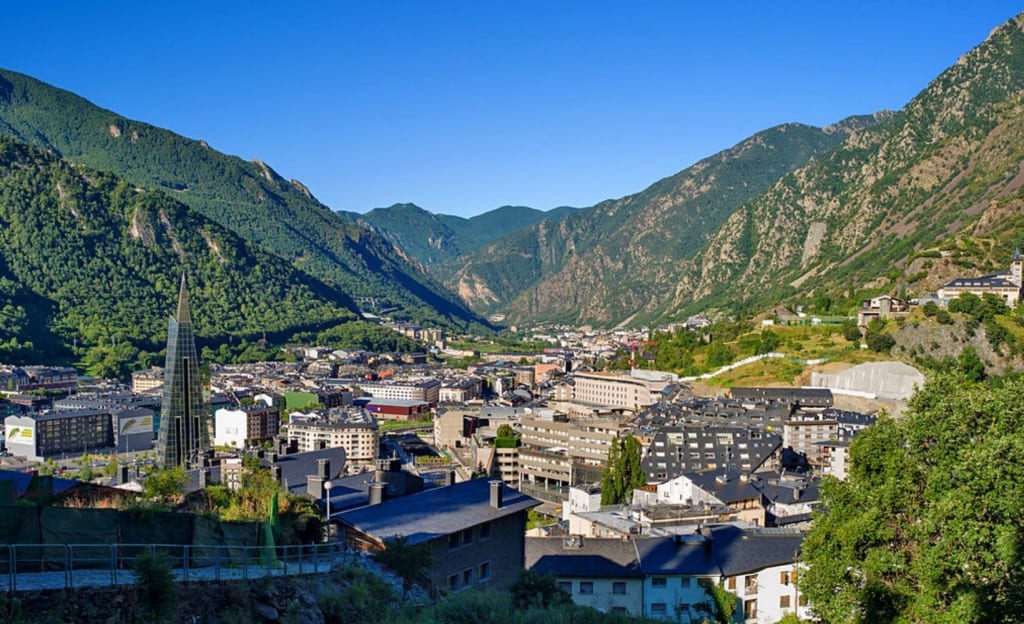Title: Andorra: A Journey Through Centuries of Independence and Identity
Andorra: A Tapestry of Independence, Tradition, and Modernity

Nestled in the eastern Pyrenees mountains between France and Spain, Andorra is a small principality with a rich history that belies its diminutive size. From its ancient origins to its modern role as a European microstate, the history of Andorra is a testament to the endurance of its unique culture and traditions.
Ancient Origins:
The history of Andorra begins in antiquity, with evidence of human habitation dating back to the Neolithic period. The rugged terrain of the Pyrenees provided natural defenses against invaders, allowing the region to develop its own distinct identity and customs.
In the 8th century CE, Charlemagne, the Frankish king, granted the region to the Spanish Count of Urgell and the French Count of Foix as a buffer zone between their respective territories. This marked the beginning of a unique political arrangement that would shape Andorra's future.
Feudal Era and the Co-Princes:
In the 13th century, Andorra became a co-principality under the joint suzerainty of the Bishop of Urgell in Spain and the Count of Foix in France. This feudal arrangement granted Andorra a degree of autonomy while maintaining ties to both neighboring powers.
The co-princes appointed local officials known as veguers to govern Andorra on their behalf, while a council of representatives from Andorran parishes, known as the General Council, served as the legislative body. This system of government laid the foundation for Andorra's unique political structure, which persists to this day.
Struggles for Independence:
Throughout its history, Andorra has faced numerous challenges to its sovereignty and independence. In the 18th century, the principality became embroiled in conflicts between France and Spain, leading to periods of instability and upheaval.
In 1866, Andorra signed a treaty with France and Spain affirming its status as an independent state and establishing formal diplomatic relations with its neighbors. This treaty, known as the Pareage, solidified Andorra's position as a sovereign entity with its own legal system and government.
Modernization and Tourism:
In the 20th century, Andorra underwent a period of rapid modernization and economic development, fueled in part by its growing tourism industry. The principality's stunning natural beauty, ski resorts, and duty-free shopping attracted visitors from around the world, contributing to its prosperity.
During the Spanish Civil War and World War II, Andorra remained neutral and largely unaffected by the conflicts raging around it. However, the principality's strategic location in the Pyrenees made it a transit point for refugees and smugglers fleeing persecution and oppression.
In the latter half of the 20th century, Andorra underwent significant social and economic changes, as the government invested in infrastructure, education, and healthcare to improve the quality of life for its citizens. The principality also embraced democratic reforms, granting suffrage to women and expanding civil liberties.
European Integration and Globalization:
In recent decades, Andorra has sought to adapt to the challenges and opportunities of globalization and European integration. The principality became a member of the United Nations in 1993 and joined the Council of Europe in 1994, reaffirming its commitment to international cooperation and human rights.
Andorra's accession to the European Union Customs Union in 1990 and the adoption of the euro as its official currency in 2002 further integrated the principality into the European economic and political system. These measures have helped Andorra strengthen its ties with its neighbors and position itself as a modern and prosperous European state.
Challenges and Opportunities Ahead:
Despite its achievements, Andorra faces several challenges in the 21st century, including the need to diversify its economy, protect its natural environment, and address social inequalities. The principality also grapples with issues such as immigration, urbanization, and the preservation of its cultural heritage.
However, Andorra's small size and close-knit community provide it with a unique advantage in addressing these challenges. Through innovation, collaboration, and a steadfast commitment to its values, Andorra is poised to navigate the complexities of the modern world and continue its journey as a proud and independent nation.
In conclusion, the history of Andorra is a testament to the resilience, ingenuity, and spirit of its people. From its ancient origins to its modern aspirations, Andorra's story is one of independence, identity, and adaptation in the face of change. As the principality looks to the future, it does so with confidence, guided by the principles of democracy, diversity, and sustainable development





Comments (1)
Hello, AI is permitted on Vocal. It is a Vocal policy that content created with AI is identified as such at the start of the story/article. Your article/story has many hallmarks of AI-assisted/generated content. You can find the details of the Vocal policy here: https://vocal.media/resources/an-update-from-vocal-on-ai-generated-content, Please amend your piece to be in compliance. If you are not a Vocal+ member you will need to contact Vocal here ([email protected]) and ask them to send your content back into your 'Drafts' where you can edit your story/article/poem. If you don’t correct this the content may be removed by Vocal and/or you may be deleted from the platform. This has been reported to Vocal.